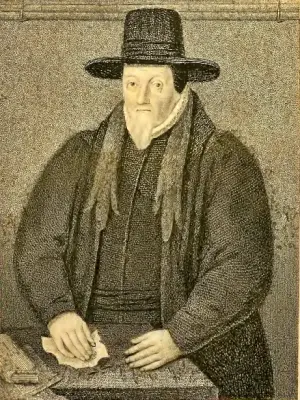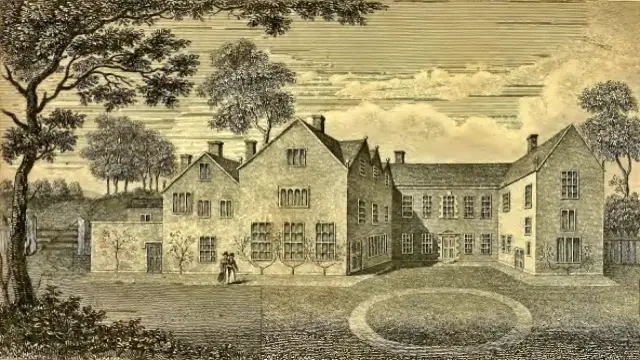Alexander Nowell: The Visionary Behind Bottled Beer
When you crack open a cold bottle of beer today, spare a thought for Alexander Nowell, the man who made it all possible. Born around 1507 in Read, near Whalley, Lancashire, Nowell was more than just a clergyman—he was an innovator whose accidental discovery revolutionized the way we enjoy beer. Let’s dive into the fascinating life of this remarkable figure and explore how his legacy lives on.
Early Life and Education
Alexander Nowell grew up in a modest household but rose to prominence through education and determination. He studied at Middleton, near Manchester, before attending Brasenose College, Oxford. After completing his studies, he was ordained as a Protestant minister, a decision that would shape both his career and his survival during turbulent times.

Nowell wasn’t just a man of faith; he had hobbies too. One of his passions was fishing, which played a pivotal role in one of history’s most delicious accidents.
The Accidental Invention of Bottled Beer
In 1554, while fishing in the River Thames (or possibly the Ash in Hertfordshire), Nowell did something unusual. Like many anglers, he brought along some ale to quench his thirst. To keep the drink fresh, he poured it into a bottle and sealed it with a cork, intending to sip it later. However, fate intervened.
That same day, Nowell became a target for Bishop Bonner, a zealous Catholic leader known as “Bloody Bonner” for his persecution of Protestants under Queen Mary Tudor. Fearing for his life, Nowell fled to the continent, leaving behind his fishing gear—and the forgotten bottle of ale.
Years later, after Queen Mary’s death and the ascension of her Protestant half-sister, Queen Elizabeth I, Nowell returned to England. During another fishing trip, he stumbled upon the long-lost bottle. Expecting flat, stale ale, he was astonished when opening the bottle produced a loud pop—“no bottle, but a gun,” as he famously described it. The ale inside had undergone secondary fermentation, creating bubbles and enhancing its flavor. This happy accident marked the birth of bottled beer.
A Life of Faith and Controversy
Nowell’s contributions extended beyond brewing. Under Queen Elizabeth I’s patronage, he became the Dean of St Paul’s Cathedral in London. His position gave him influence, but it also placed him in the spotlight, sometimes uncomfortably so.

One notable incident occurred on New Year’s Day 1562. Nowell presented the Queen with a beautifully bound book filled with pictures of saints and martyrs. Unfortunately, Elizabeth disliked images, viewing them as remnants of Catholic idolatry. She frowned, blushed, and demanded her old prayer book instead. Though initially upset, she eventually forgave Nowell, recognizing his innocent intentions. Nevertheless, the episode sparked a wave of reforms across London churches, with wall paintings being whitewashed and replaced with Biblical texts.
Clashes with the Crown
Despite his loyalty to the Church of England, Nowell occasionally found himself at odds with Queen Elizabeth. In 1564, during a Lenten sermon, he criticized the use of crucifixes, prompting the Queen to interrupt loudly: “To your text, Mr. Dean, leave that; we have heard enough of that.” Humiliated, Nowell struggled to continue his sermon. Such moments highlight the delicate balance between religious conviction and royal authority during the English Reformation.
Legacy Beyond Beer
While Nowell is best remembered for inventing bottled beer, his impact on history goes deeper. In 1568, he visited his hometown of Read, where he likely met his young half-nephew, Roger Nowell. Little did Alexander know that Roger would grow up to play a key role in one of England’s most infamous trials—the prosecution of the Pendle Witches in 1612.
Roger inherited Read Hall after his father’s death in 1591. As a justice of the peace, he led the investigation into allegations of witchcraft in Pendle, Lancashire. Although Alexander never lived to see it, his family name became intertwined with this dark chapter of English history.
Why Alexander Nowell Matters Today
Nowell’s story reminds us that innovation often arises from unexpected places. What started as a simple act of convenience—pouring ale into a bottle—transformed an entire industry. Before Nowell, beer was typically stored in barrels, resulting in a flat taste. Thanks to his discovery, people could now enjoy fizzy, flavorful brews anytime, anywhere.
Moreover, Nowell’s life reflects the complexities of the English Reformation. As a Protestant minister, he navigated dangerous waters, fleeing persecution under Queen Mary and serving under Queen Elizabeth. His experiences underscore the tension between personal beliefs and political realities.
Lessons from a Remarkable Life
There are several takeaways from Alexander Nowell’s journey:
- Embrace curiosity: Whether fishing or experimenting with beverages, curiosity can lead to groundbreaking discoveries.
- Persevere through adversity: Despite facing threats from Bishop Bonner, Nowell survived and thrived, leaving a lasting legacy.
more suitable Biblical texts.
In 1564, Nowell found himself at odds with the Queen when, during a Lenten sermon he spoke disparagingly of the crucifix, whereupon the Queen loudly rebuked him, calling out, “To your text, Mr. Dean leave that; we have heard enough of that.” Nowell was so upset he was unable to carry on. In 1568, Nowell made a visit home to Lancashire, where he preached many sermons, and undoubtedly returned home to Read, where he would have been introduced to his young half-nephew Roger, then about six years old. Roger would grow up to be master of Read Hall, when his father died inn1591. In 1612, he prosecuted the Pendle Witches.

